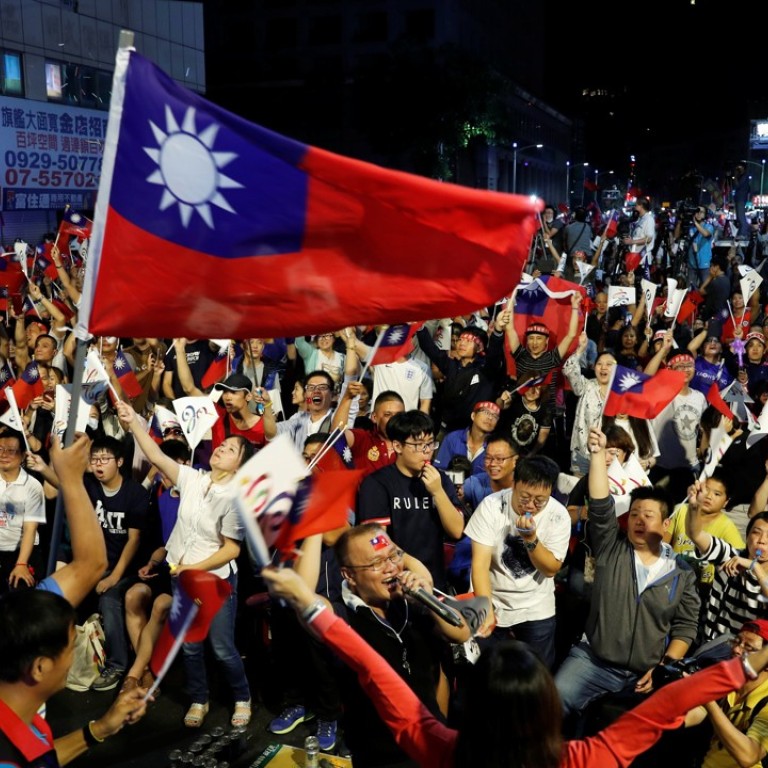
Taiwan’s Tsai Ing-wen says no change to relations with mainland following local election defeat
- US delegation hears poll result reflects dissatisfaction with domestic policies, rather than cross-strait ties
Taiwan’s policy of maintaining the status quo with mainland China would not change, despite a major defeat in recent local elections for the ruling party, Taiwanese President Tsai Ing-wen said on Friday.
Nor did the self-ruled island want to see political preconditions on city and county-level exchanges with the mainland, she told a delegation from the US-based National Committee on American Foreign Policy which included US Ambassador Susan M. Elliott and former chairman of the American Institute in Taiwan Raymond Burghardt.
Tsai was responding to a proposal by Beijing for more cooperation between Taiwan and mainland cities and prefectures following last week’s reversal for her independence-leaning Democratic Progressive Party.
The DPP was defeated in seven of the 13 cities and counties it had previously controlled, including its stronghold port city of Kaohsiung in the island’s south, prompting Tsai to resign as party chairwoman.
Taiwan Affairs Office spokesman Ma Xiaoguang said the election result showed Taiwanese wanted better ties with the mainland and called on the island to remove barriers to cross-strait communications.
“We humbly accept the people’s dissatisfaction expressed through this election on our domestic policies and reform. However, we do not think there is a majority choice or will to change our cross-strait policies,” Tsai said.
“Therefore, after the election, our stance on maintaining the status quo will remain unchanged.
“While the DPP’s performance in this election left us disappointed, our elections are cherished assets and remain our greatest difference with China,” she said.
Beijing seeks to build ties with Taiwanese cities after ruling party suffers election defeat
Tsai said her administration remained open and positive to greater cross-strait communication, but the island would not like to see any political preconditions attached.
She was referring to the 1992 consensus, which is an understanding that both sides of the Taiwan Strait belong to one China, but each side could have a different interpretation of what China means.
Tsai told the US delegation that the resolution to uphold the values of freedom and democracy remained unchanged and the island would continue to support like-minded countries and international organisations.
“The US is Taiwan’s most important strategic partner and next year marks the 40th anniversary of the Taiwan Relations Act, so we look forward to continuing such close cooperation and to further expand the win-win and reciprocal relations between our two nations,” Tsai said.
In last week’s local elections, the opposition Kuomintang (KMT), which accepts the 1992 consensus and is willing to improve relations with the mainland, made significant gains. However, much of the campaign was focused on domestic issues such as living standards.
Since Tsai became the island’s president in 2016 she has refused to accept the one-China principle. In response, Beijing has stepped up pressure against Taiwan, including staging war games around the island and poaching five of Taipei’s allies.
It has also demanded that international companies, including airlines, refer to Taiwan either as a Chinese province or as Taiwan, China.

